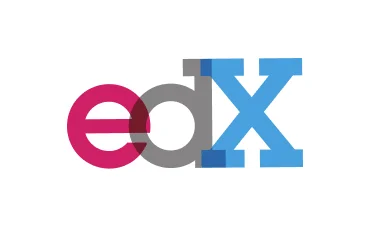When you enroll through our links, we may earn a small commission—at no extra cost to you. This helps keep our platform free and inspires us to add more value.

KULeuvenX: Sustainable Trade
Critical interdisciplinary introduction on how to make international trade and global value chains more sustainable from the Global South to the Global North, with a focus on the contribution of voluntary sustainability standards.

This Course Includes
 edx
edx 4.5 (6 reviews )
4.5 (6 reviews ) 10 weeks at 2-3 hours per week
10 weeks at 2-3 hours per week english
english Online - Self Paced
Online - Self Paced course
course KULeuvenX
KULeuvenX
About KULeuvenX: Sustainable Trade
International trade is a strong engine for poverty reduction, employment creation, innovation, and many other benefits. The important role of international trade for development is also recognized in the ambitious Sustainable Development Goals of the United Nations’ 2030 Agenda. According to this Agenda, societies around the world need to achieve 17 goals and above 150 sustainability targets by 2030.
However, trade can also significantly contribute to sustainability challenges, such as climate change, deforestation, human rights abuses, and many other issues.
Against this backdrop, several initiatives have been developed to make international trade more sustainable.
In this MOOC, you will learn more about what international trade is, how it has grown and evolved, and how it is structured around Global Value Chains. You will gain insight into what sustainable development is and how international trade affects it, but also how trade can contribute to achieving sustainability goals. You will acquire knowledge about the different trade instruments that can be used to improve sustainability.
In particular, this MOOC will focus on the role of voluntary sustainability standards (VSS), the systems behind the labels that we encounter on products we buy daily, such as Fairtrade, Rainforest Alliance, or the Forest Stewardship Council. VSS have become important market-based tools to make international trade more sustainable. In this MOOC, you will learn more about what VSS are, how they emerged, and how they work. You will also learn to think about the effectiveness of VSS both in terms of their adoption and in terms of impact. You will gain insight into where and how VSS are adopted across different units of analysis, and what motivates or hinders different actors to adopt them. You will also understand how VSS aims to generate impact on different sustainability dimensions, and how research can be conducted to evaluate VSS impact. You will then learn about the current evidence that is available on VSS impact, and reflect on the main challenges in assessing VSS impact. You will also become aware of the interactions between VSS and public policy, and will critically reflect on their future as instruments for trade governance.
Learn more about sustainable trade through videos from academic experts, interactive exercises and discussions, online readings, webinars, and interviews with professionals in the field.
What You Will Learn?
- Understand how international trade works and what global value chains are..
- Acquire in-depth knowledge of what sustainable development is, why it is important, and what the challenges are to achieve it..
- Become aware of how globalization, international trade and sustainable development are interrelated and appreciate the key importance of international trade to contribute to peace, security, development and the UN Sustainable Development Goals..
- Gain insight into the different ways in which trade governance can deal with sustainable development..
- Obtain in-depth knowledge of voluntary sustainability standards (VSS), also called eco-labels or certification schemes, as an important tool for global trade governance..
- Grasp the emergence and evolution of VSS and gain insight into how VSS set and enforce sustainability standards..
- Learn how VSS differ in their design and how this influences their credibility..
- Become aware of where and to what extent VSS are used and how this varies across countries and time, and understand the motivations and barriers for the adoption of VSS..
- Explore the pathways through which VSS aim to generate impact on different sustainability dimensions..
- Acquaint yourself with the different research approaches and designs to study the impact of VSS, understand their respective strengths and weaknesses, and learn how to interpret research results..
- Understand how VSS as private governance instruments are integrated into public policies..